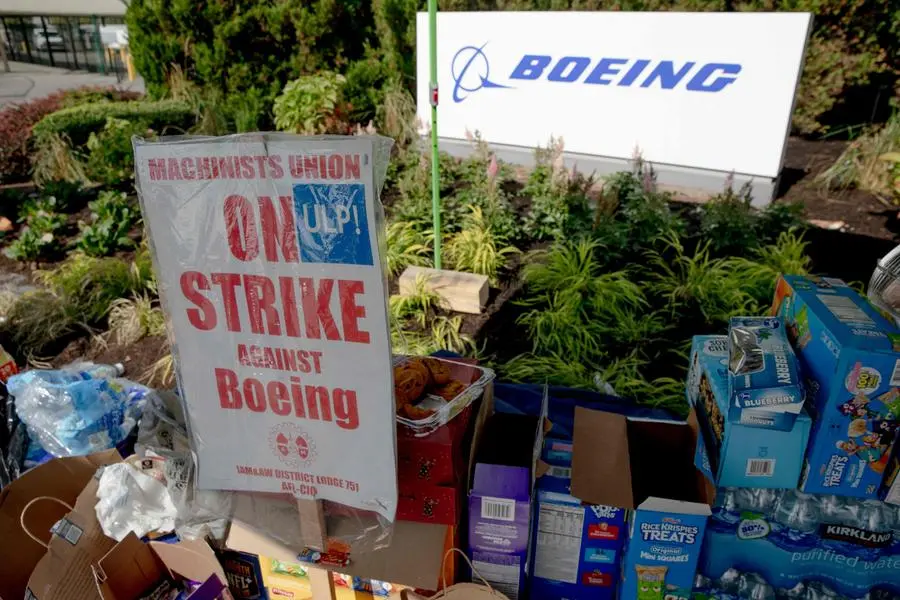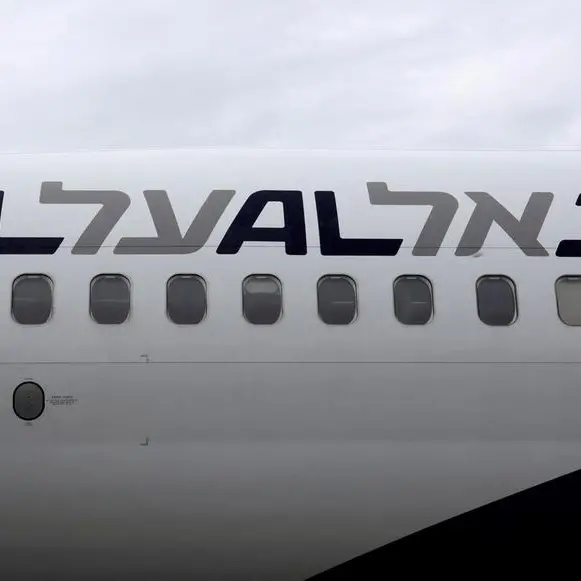PHOTO
Negotiators from Boeing and the machinists union are scheduled to resume talks Tuesday after some 33,000 workers went on strike late last week.
Members of the International Association of Machinists and Aerospace Workers District 751 have been picketing 24 hours a day following the walkout early Friday morning, shuttering Seattle-area factories that assemble the 737 MAX and 777.
"Now is the moment to rise -- show Boeing that our voices aren't just loud; they are unstoppable," the IAM said over the weekend. "We are stronger than ever before, and we won't back down."
The IAM, which has touted support from peer unions and from political figures, began surveying the members to rank their priorities as the negotiations enter the next phase.
Meanwhile, Boeing announced Monday a hiring freeze and cutbacks in supplier expenditures and cautioned that it was considering staff furloughs.
"Our business is in a difficult period," Chief Financial Officer Brian West said in a memo to staff. "We must take necessary actions to preserve cash and safeguard our shared future."
West told an investor conference Friday that the company was eager to get back to the bargaining table and "hammer out a deal."
The talks, which will be assisted by federal mediators, aim to speed a resolution to Boeing's first strike since 2008 at a time when the aviation giant has been losing money and faces scrutiny from regulators and customers after safety incidents.
Boeing had been hopeful about averting a strike after reaching a preliminary deal with IAM leadership on September 8 that included a 25 percent general wage increase over four years, reduced mandatory overtime and a pledge to build the next new airplane in the Puget Sound.
But rank-and-file workers blasted the deal as insufficient, dismissing the 25 percent figure as misleading and inadequate in light of the agreement's elimination of an annual bonus for workers.
Workers also were displeased with other elements of the agreement, including a pension issue. And they said the pledge on the new airplane needed to be strengthened beyond the four-year lifespan of the contract.
Underlying the fury has been a more than decade-long period of essentially stagnant wages at a time when consumer inflation has stressed budgets.
Workers late Thursday overwhelmingly rejected the deal and voted 96 percent to strike.
Analysts at Bank of America noted that Boeing strikes have historically lasted about 60 days on average, but said there was also a chance of it being as short as a week.
"We see it likely Boeing would have to make further concessions and move closer to the IAM's initial proposal of 40 percent wage gains," Bank of America said in a note.
TD Cowen also said a "quick resolution" was a possibility, but pointed to the chance of a protracted stoppage because of the "loss of credibility" of Jon Holden, head of the IAM's Seattle district.
"Boeing will be leery of getting a yes vote just on his support, and the union is unlikely to accept a revised Boeing offer on his say so," TD Cowen said."If Boeing's second offer fails, we see both sides digging in."
Holden has said his initial support for the deal was because he believed it was the best agreement possible without a strike and that a better deal could not be guaranteed in a strike.
But the "real power" of the IAM rests with workers, Holden said at a news conference last week announcing the strike.
Joining the talks will be three officials from the Federal Mediation & Conciliation Service (FMCS), which reached out to the parties right after the strike began and will facilitate negotiations.
Javier Ramirez, deputy director of field operations for the FMCS, said the plan Tuesday will be to meet with the two sides together before speaking individually with each side and sometimes conducting shuttle diplomacy.
"We reached out to have them meet and talk sooner rather than later," said Ramirez, who described the FMCS' role as open ended and day-by-day.
jmb/dw





















